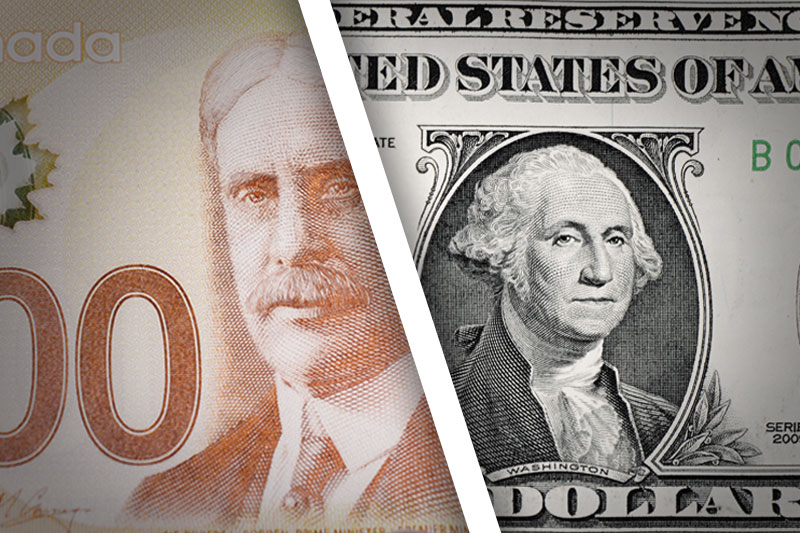Investing.com’s stocks of the week
Investing.com - The U.S. dollar pulled away from seven-month highs against its Canadian counterpart on Friday, as strong U.S. economic growth data strengthened market sentiment, although the greenback remained supported by the Federal Reserve's recent policy statement.
USD/CAD pulled away from 1.0737, the pair's highest since May, to hit 1.0702 during early U.S. trade, still up 0.36%.
The pair was likely to find support at 1.0661 and resistance at 1.0853.
Risk sentiment improved as official data showed that U.S. gross domestic product expanded by 4.1% in the third quarter, above initial estimates for 3.6% growth.
But the greenback remained supported after the Fed announced Wednesday that it would reduce its USD85 billion-a-month bond buying program by USD10 billion in January.
The U.S. central bank reiterated that interest rates are likely to remain low even after the unemployment rate drops below 6.5%, the threshold at which the Fed has previously said it would start to consider rate increases.
In Canada, official data showed that consumer price inflation was flat in November, compared to expectations for a 0.2% fall. Core consumer price inflation, which excludes the eight most volatile items, ticked down 0.1% last month, confounding expectations for a 0.1% rise.
A separate report showed that retail sales in Canada slipped 0.1% in October, disappointing expectations for a 0.3% rise. Core retail sales, which exclude automobiles, increased by 0.4% in October, compared to expectations for a flat reading.
The loonie was lower against the euro, with EUR/CAD rising 0.24% to 1.4607.
Also Friday, data showed that the Gfk German consumer climate index rose to 7.6 in December, from a reading of 7.4 the previous month. Analysts had expected the index to remain unchanged this month.
A separate report showed that German producer price inflation fell 0.1% in November, in line woth expectations, after a 0.2% decline the previous month.
USD/CAD pulled away from 1.0737, the pair's highest since May, to hit 1.0702 during early U.S. trade, still up 0.36%.
The pair was likely to find support at 1.0661 and resistance at 1.0853.
Risk sentiment improved as official data showed that U.S. gross domestic product expanded by 4.1% in the third quarter, above initial estimates for 3.6% growth.
But the greenback remained supported after the Fed announced Wednesday that it would reduce its USD85 billion-a-month bond buying program by USD10 billion in January.
The U.S. central bank reiterated that interest rates are likely to remain low even after the unemployment rate drops below 6.5%, the threshold at which the Fed has previously said it would start to consider rate increases.
In Canada, official data showed that consumer price inflation was flat in November, compared to expectations for a 0.2% fall. Core consumer price inflation, which excludes the eight most volatile items, ticked down 0.1% last month, confounding expectations for a 0.1% rise.
A separate report showed that retail sales in Canada slipped 0.1% in October, disappointing expectations for a 0.3% rise. Core retail sales, which exclude automobiles, increased by 0.4% in October, compared to expectations for a flat reading.
The loonie was lower against the euro, with EUR/CAD rising 0.24% to 1.4607.
Also Friday, data showed that the Gfk German consumer climate index rose to 7.6 in December, from a reading of 7.4 the previous month. Analysts had expected the index to remain unchanged this month.
A separate report showed that German producer price inflation fell 0.1% in November, in line woth expectations, after a 0.2% decline the previous month.
